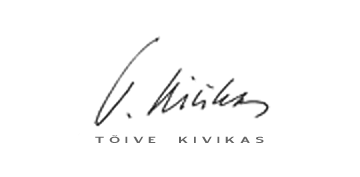July 1937 - A Long Journey
July is a nice summer month in my home country Estonia. That was also the case July 1937 when I was born. Although Estonians are known to be one of the few settlers in Europe, who still live in their original territory, our neighbours have not let us live in peace.
When I was a seven-year old boy, my family had to flee to Sweden. That was in 1944, when the Soviet Red Army occupied Estonia. It was a hard decision for my parents to make. If we had stayed, we would have been arrested by the KGB - as many Estonians were. In Sweden I had the opportunity to study (PhD in physics) and worked many years as a university teacher.
The exile in Sweden lasted until 1991, when Estonia regained its independence.
My varied and sometimes dramatic life has had a great impact on me, especially on my values and my attitudes (beliefs?). This impact has been evident when I have been in life changing situations. Especially when the decision has affected the future of my family or the company I worked for at that moment.
Basically, the values which guide me, are:
- respect for other people
- a belief that everybody wants to make a good job and has a desire to succeed
- maximum freedom for every individual
- to be honest
- to try to act as a guideline to others.
Early in 1970 I left the university and joined the business world (industry). There I got the opportunity to test my values and my attitudes as a leader in the real world.
During these 30 years in different businesses and different company cultures, there has been no reason for me to change my ethical principles. The most powerful leadership tool was 30 years ago and is still to treat people fairly and to follow ethical principles based on humane values. This is my firm conviction, drawn especially from my experiences as CEO at Studsvik. The Studsvik case is analysed and discussed in two textbooks written by Per-Hugo Skärvad and Hans Krona, "Revolutionens ledarskap" (1994) and "Framgångsrika företagskulturer" (1995), which were both rewarded as the leadership book of the year 1995 and 1996 respectively.
A question you may raise now, is why these straightforward and logical observations seem so difficult to implement? This is one of the key questions when dealing with
leadership, and is something I often revert to and discuss when giving
seminars and lectures in leadership. |







